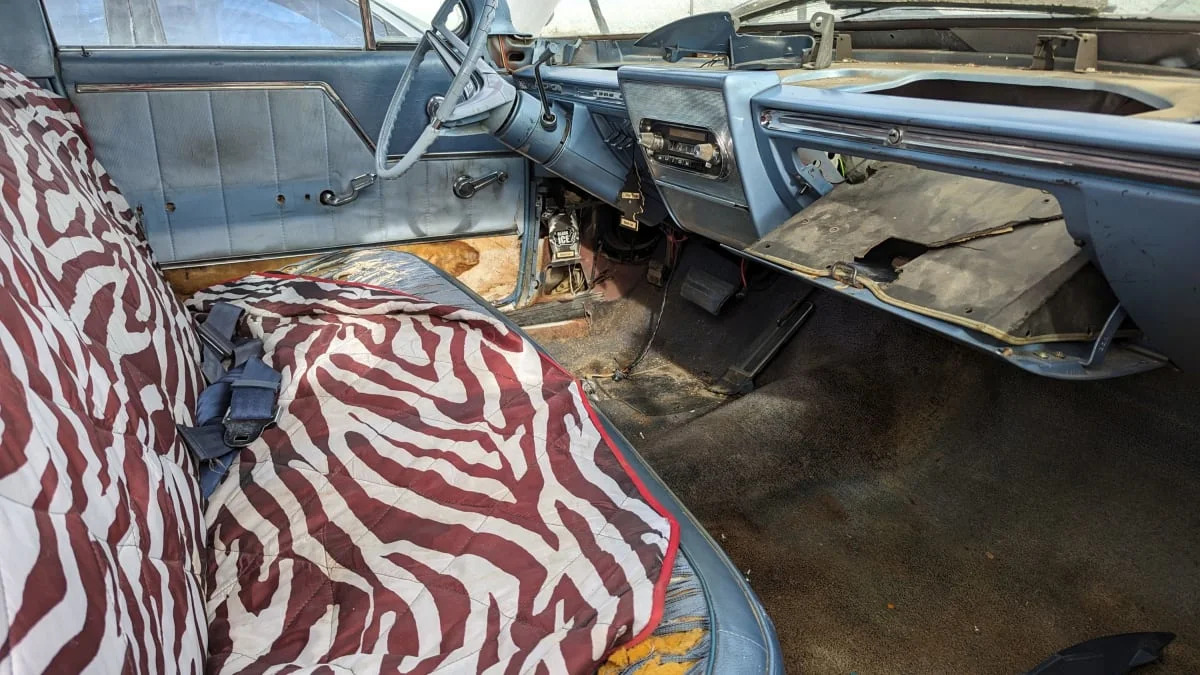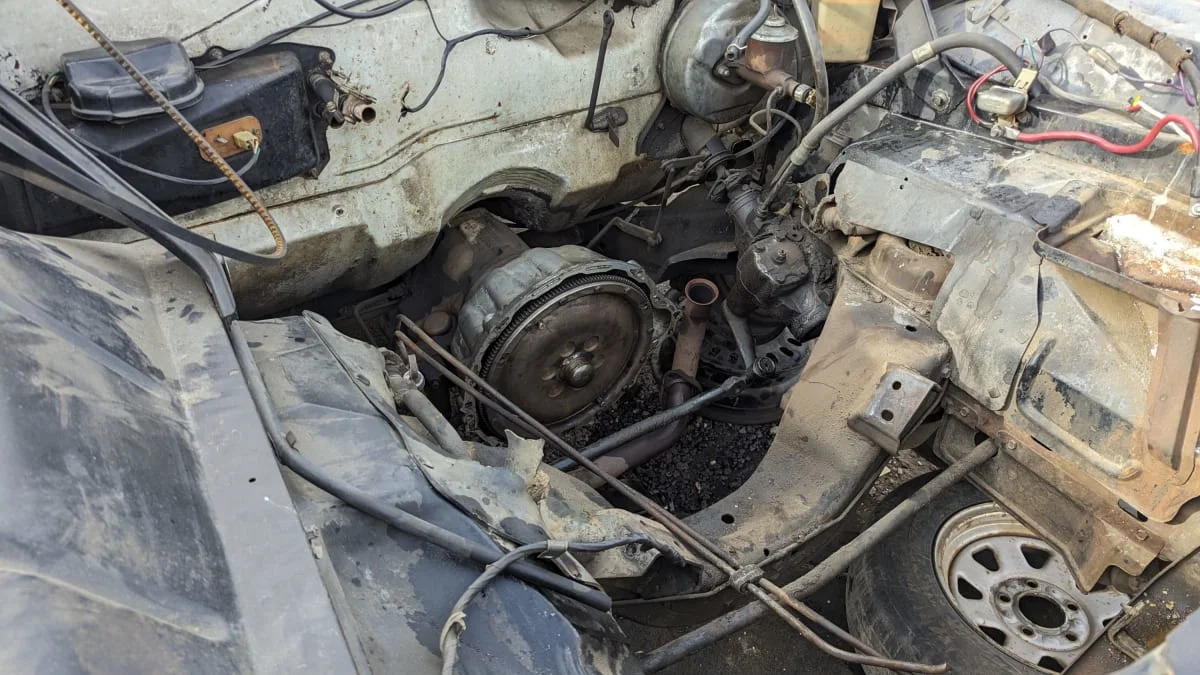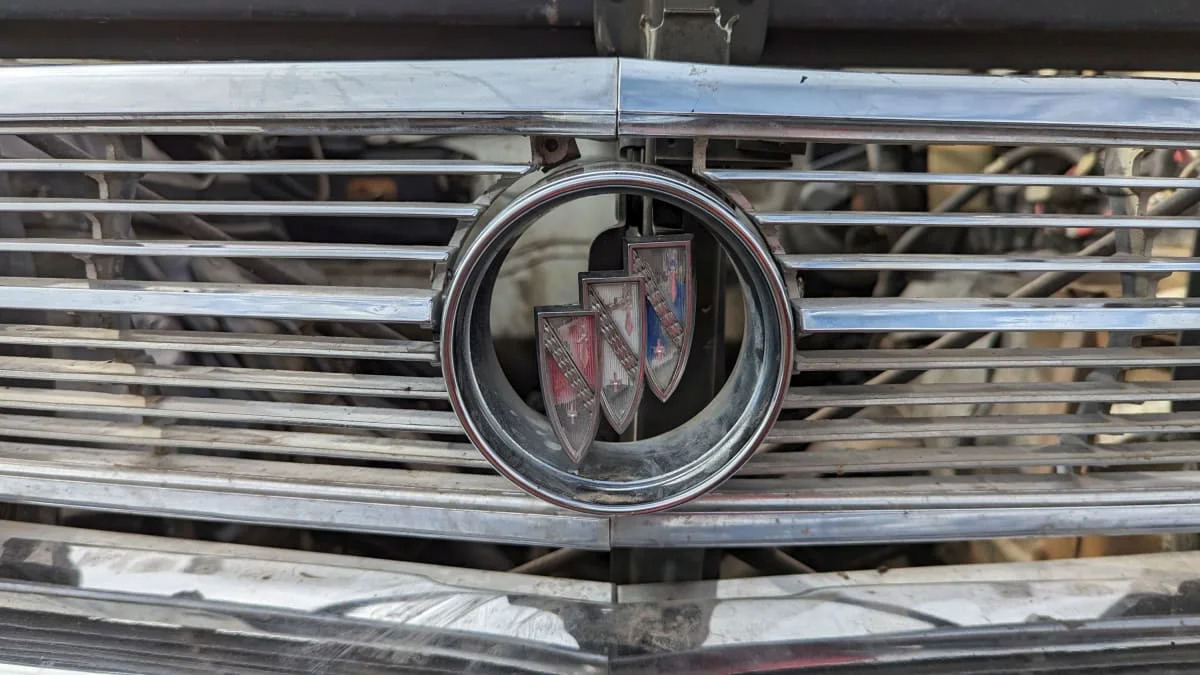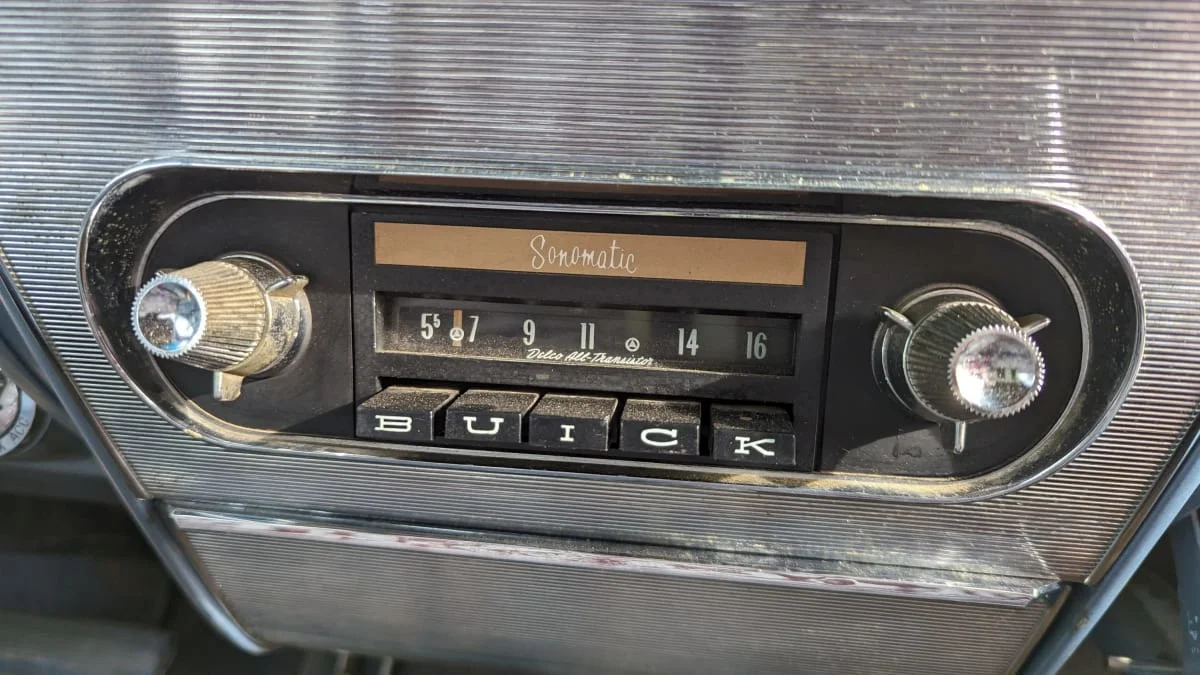Buick built its first Electras as 1959 models, with Electra production continuing unabated through 1990 (after which the Park Avenue trim level took over as the model name, much as the Malibu trim level designation had shoved aside the Chevelle model name in 1978). Some of the handsomest Electras were the second-generation models, built for the 1961-1964 model years, and today’s Junkyard Gem is one of those cars.
I’d always assumed that the Buick Electra took its name from the daughter of Clytemnestra and Agamemnon in Greek mythology, because the people who named cars back then were forced to read Euripides and Sophocles as undergrads. In fact, the car was named after Electra Waggoner Bowman Biggs, a Texas heiress and sculptor who married the brother-in-law of Harlow Curtice, who ran the Buick Division before being promoted to president of General Motors in 1953. How did she feel when the last Electra rolled off the assembly line in 1990? The junkyard is full of history, if you know where to look.

The 1959-1960 Electra had enormous tailfins, angled something like the ones seen on the same-year Chevrolet Impalas. This Electra generation ditched the fins but kept much of the general Space Age spirit of its predecessor.

The Electra lived on the same platform as the Cadillac DeVille and Oldsmobile 98 from start to finish, and it was the most expensive Buick available in 1962. The MSRP of this one was $4,051, or about $41,462 in 2023 dollars.

The engine in this one was present when it arrived at U-Pull-&-Pay, but a junkyard shopper grabbed it within a couple of days of arrival. It would have been a 401-cubic-inch (6.5-liter) “Nailhead” V8, rated at 325 horsepower and a whopping 445 pound-feet of torque (keep in mind that these are gross, not net, power numbers). The Nailhead’s small valves meant that it wasn’t much good for high-rpm use, but its big torque was perfect for moving two-ton land yachts. The final Nailheads were installed in 1966 Buicks.

Every production Electra ever built came with an automatic transmission, and the 1959-1963 models received the extremely smooth and alarmingly inefficient Dynaflow (known as the Dual-Path Turbine Drive for 1962). Originally developed for use in the 1943 M18 Hellcat tank destroyer, the Dynaflow was considered a two-speed automatic but drove more like a CVT with two selectable drive ranges. For 1964, the three-speed Super Turbine 300 automatic (known as the Turbo-Hydramatic 400 when installed in vehicles made by other GM divisions) replaced the Dynaflow in the Electra.

Car radios sold in the United States from the 1953 through 1963 model years were required to have the CONELRAD nuclear-attack-warning frequencies of 640 and 1240 kHz marked with Civil Defense triangle symbols on their dials, and that’s what’s in the dash of this Buick.

This car’s body appears to have been bent up and repaired with thick layers of body filler on more than one occasion, though there isn’t much serious rust. Detroit post sedans of this era aren’t worth nearly as much as their convertible, coupe and hardtop counterparts, so there wasn’t much chance of this one getting restored.

The early-1990s baseball cards I found inside suggest that this car was parked for good decades ago.
Read the full article here


